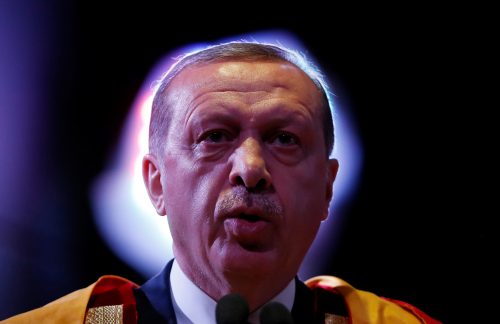Turkish officers speak: Erdogan may have staged coup

Date posted: May 1, 2017
Michael Rubin
Controversy still surrounds last summer’s abortive coup in Turkey. Turkish President Recep Tayyip Erdogan called it “a gift from God” and used the coup as an excuse to crackdown not only on one-time ally Fethullah Gülen, whom he fingered before the smoke even cleared, but also on tens of thousands of opponents from across the political spectrum.
Inside Turkey, Erdogan controls both the judiciary and the media and so has been able to push a single narrative in support of his accusations. The problem with the official Turkish narrative, however, is that it omits many contradictory strands of information. Diplomatically, this is reflected in the frustration Turkish officials have voiced at the failure of the United States and several European states to support a crackdown on Gülen’s followers. Simply put, the evidence Erdogan has supplied does not reach a standard of evidence necessary for action in any independent court.
So, if Erdogan’s narrative is flawed, what are the alternative theories? On the surface, much doesn’t add up. Now, several career Turkish military officers — none of whom are followers or supporters of Gülen — have compiled from open sources a lengthy report analyzing the coup. They have authorized me to share the Dropbox link where they have made it accessible. They describe their own efforts:
This study is a modest effort for a better understanding 15 July 2016. It addresses some of the critical areas like who the dissenters were, their motivation, Erdogan’s prior awareness, his role in the events, his supporters in the military and elsewhere. This study is based on the collection and the analysis of the publicly available data. It comprises records of official/public speeches, press releases/reports, witness/suspect testimonies, and indictments. The study puts a light on the background of 15 July, reconstructs the critical events on a timeline, raises arguments and offers a series of findings.
The whole report is worth reading. It is based entirely on open sources, and highlights the internal contradictions and provable falsehoods offered in testimony, both voluntary and forced. They make a persuasive case that Erdogan’s narrative is false and that the coup was essentially Turkey’s equivalent of the Reichstag fire. Some followers of Gülen participated, but they were largely lower ranking officers who either believed that they were engaged in an exercise ordered by their immediate military supervisors, or made the wrong choice when faced with a decision about which side to support as events unfolded.
The Turkish military officers’ report especially important as Turkey prepares to try tens of thousands of civil servants and officers on charges that could lead to life in prison or perhaps even the death penalty.
Turkey may be a dictatorship and its judiciary a joke, but that doesn’t mean that both Turks and the outside world shouldn’t recognize the story is more complicated. No matter how authoritarian Turkey may become, it is hard to completely hide the truth.
Tags: Erdogan’s Reichstag Fire | Military coups in Turkey | Turkey |
























